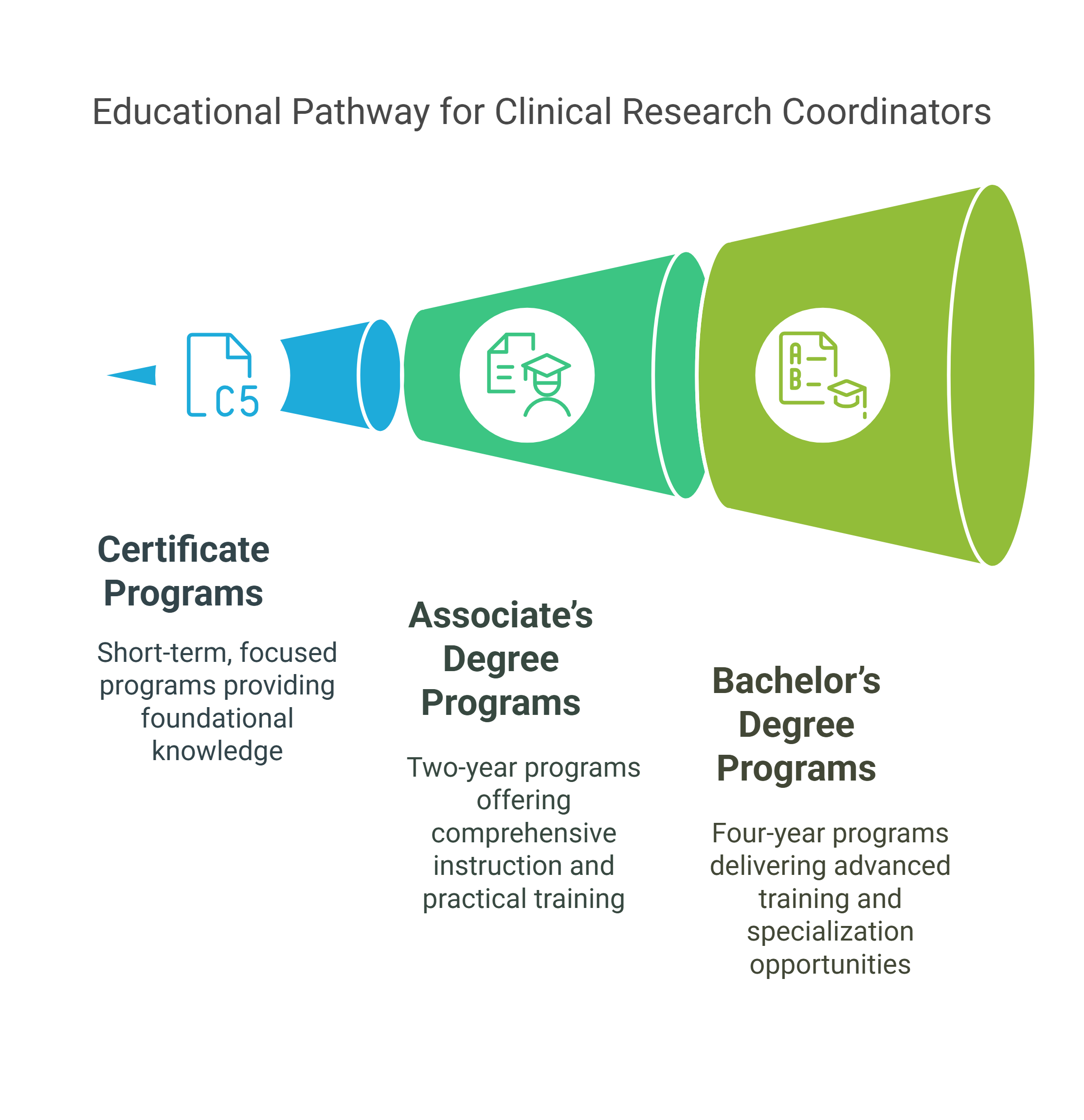Clinical Research Coordinator Certification In 2025
A Comprehensive Guide to Clinical Research Coordinator Classes
The medical field thrives on relentless innovation. Behind every groundbreaking treatment and medical solution is an intricate web of research, planning, and execution—and at the heart of it all is the Clinical Research Coordinator (CRC). If you've been considering a career in clinical research, becoming a CRC is an excellent way to be at the forefront of medical advancements.
Who is a Clinical Research Coordinator?
A Clinical Research Coordinator wears many hats. They’re the driving force behind research sites, ensuring that trials are executed seamlessly while maintaining regulatory and ethical standards. Often referred to simply as CRCs, these individuals manage documentation, safeguard patient well-being, and oversee the implementation of research procedures.
But this isn't a solo mission. CRCs operate under the guidance of a Principal Investigator (PI), the medical professional responsible for overseeing the clinical trial overall. Together, they collaborate to push scientific boundaries while maintaining strict compliance with research protocols.
For those ready to step into this crucial role, enrolling in Clinical Research Coordinator classes could be the first step towards launching your career.
What Does a Clinical Research Coordinator Do?
The day-to-day responsibilities of a CRC revolve around precision and professionalism. Whether managing trial logistics or ensuring participants’ safety, a CRC’s critical eye for detail is indispensable. Their duties often span months as clinical trials require careful planning, consistent monitoring, and extensive data collection.
Beyond technical skills, CRCs are also skilled communicators. They serve as representatives of their healthcare organization or institution, bridging gaps between research teams, sponsors, and participants. Building strong professional relationships is essential for the successful implementation of any study.
If you're organized, patient, and driven by the prospect of impacting healthcare innovation, the CRC role might just be your calling.
The Path to Becoming a Clinical Research Coordinator
There’s no single route to becoming a CRC, which means professionals from various educational backgrounds can find their way into this exciting field. Degrees and experience in areas like nursing, biology, pharmacy, business administration, statistics, medical technology, or teaching can all pave the way. CRCs are employed across a variety of settings, including research institutions, private companies, biotechnology firms, and pharmaceutical organizations.
Your Educational Foundation
While a bachelor's degree in microbiology, biology, or a related health science is often ideal, it’s not the only way to qualify for the role. Employers value relevant experience just as much as formal education. Completing coursework focused on clinical research will also give you a competitive edge when entering the industry.
Experience Matters
Many entry-level CRC positions require at least 1-2 years of professional experience in a healthcare or research environment. More senior roles demand anywhere from 5-6 years of experience and often a master's degree for leadership roles with greater responsibilities and higher pay.
The Role of Clinical Research Coordinator Classes
Formal education through Clinical Research Coordinator classes can lay the foundation for your future success. These programs are specifically designed to equip aspiring CRCs with practical knowledge, research expertise, and ethical training essential for excelling in the field. Here’s a breakdown of the types of CRC programs you can explore:
1. Certificate Programs
Focused and efficient, certificate programs offer a solid understanding of clinical research guidelines, ethics, and practices. These are often short-term and flexible, with some even offered online. Special courses, such as those in Pharmacovigilance or Good Clinical Practice (ICH-GCP), can enhance your qualifications further.
2. Associate’s Degree Programs
Looking for more comprehensive instruction? Associate’s degree programs take a deep dive into research methodologies, ethical considerations, and data management techniques. These take about two years and can include hands-on, practical training such as Clinical Trial Assistant programs.
3. Bachelor’s Degree Programs
A bachelor's degree in clinical research is the most in-depth option available. Spanning four years, these programs offer robust training in project management, regulatory compliance, and advanced research techniques. Graduates are well-prepared to step into senior CRC roles or even specialize further.
Why Take Clinical Research Coordinator Classes?
Enrolling in CRC classes isn’t just an investment in education—it’s an investment in your future. Here’s what you stand to gain:
Stronger Job Prospects
Employers favor candidates with formal education and demonstrated expertise. Classes set you apart as committed and prepared for the challenges of the role.Enhanced Skills and Knowledge
Gain proficiency in essential areas like regulatory compliance, clinical data management, and ethical research practices, all of which are crucial to a successful career.Opportunities for Career Growth
Advanced education often leads to better roles, higher salaries, and opportunities to contribute to groundbreaking medical trials.Networking Connections
Many programs connect you with industry professionals, instructors, and peers who can become valuable allies in your career.
For ambitious professionals, pursuing advanced certifications such as the Medical Monitor Certification or Advanced Principal Investigator Certification can lead to leadership roles in clinical research.
How to Choose the Right CRC Class
With so many options available, selecting the right program may feel overwhelming. Here are some factors to consider before making your choice:
Accreditation: Make sure the program is accredited by a credible organization to ensure quality education.
Curriculum: Review the course content to confirm it covers topics like research ethics, data analysis, and compliance with regulatory standards.
Learning Format: Decide whether online, in-person, or blended classes best suit your needs.
Cost and Time: Budget for tuition and assess how the program length fits within your timeline.
Final Thoughts
A career as a Clinical Research Coordinator offers a unique chance to contribute to medical breakthroughs that improve lives. With the right education, practical training, and dedication, you can make a meaningful impact in this dynamic field. Enrolling in clinical research coordinator classes will not only sharpen your skills but also open doors to new career opportunities.
Take charge of your future, invest in your education, and set your sights on a fulfilling career at the forefront of medical innovation.














